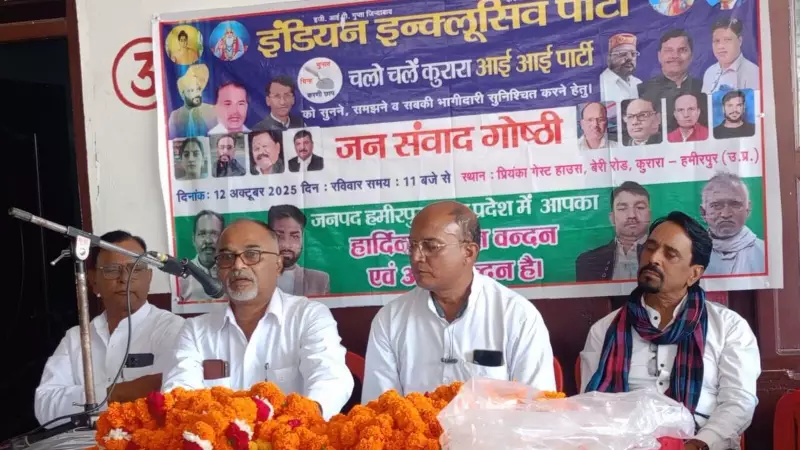
In a significant political development that could reshape Bihar's electoral dynamics, smaller caste-based parties are emerging as crucial power brokers in the state's complex political chessboard. The recent induction of the Indian Inclusive Party (IIP) into the INDIA opposition bloc underscores this growing trend that is challenging traditional political equations.
The Rise of Smaller Players
Bihar's political landscape, long dominated by heavyweight parties like JD(U), RJD, and BJP, is witnessing an unprecedented phenomenon. Smaller parties representing specific caste groups are gaining remarkable influence, forcing national alliances to reconsider their strategies. These parties, though individually small in size, collectively represent significant vote banks that can swing election results in closely contested constituencies.
INDIA Bloc's Strategic Move
The opposition INDIA alliance's decision to incorporate the Indian Inclusive Party represents a calculated move to consolidate caste-based support. This strategic inclusion comes at a time when political analysts are observing a fragmentation of traditional vote banks and the emergence of more localized political identities.
Why Smaller Parties Matter Now
Several factors contribute to the growing clout of smaller caste-based parties:
- Micro-targeted appeal: These parties connect with specific communities at a grassroots level
- Localized issues: They address hyper-local concerns that larger parties often overlook
- Strategic bargaining power: In hung assemblies, they become kingmakers
- Identity politics: They effectively leverage caste identities for political mobilization
Changing Political Equations
The traditional bipolar politics of Bihar is gradually giving way to a more fragmented landscape where smaller parties can influence government formation and policy decisions. This shift is particularly significant in a state where caste has historically played a decisive role in electoral outcomes.
Impact on Major Alliances
Both the ruling NDA and opposition INDIA bloc are compelled to recalibrate their strategies. The need to accommodate these smaller parties in seat-sharing arrangements and power structures has become imperative for electoral success. This development could potentially alter the traditional social engineering formulas that have characterized Bihar politics for decades.
Future Implications
As Bihar approaches another electoral test, the enhanced role of smaller caste-based parties signals a broader transformation in Indian politics. This trend toward political fragmentation at the state level might influence how national parties approach coalition building and alliance management in other states with complex social compositions.
The coming elections will demonstrate whether this strategic inclusion of smaller parties translates into electoral gains for the INDIA bloc or if it complicates the already intricate political arithmetic of Bihar.





